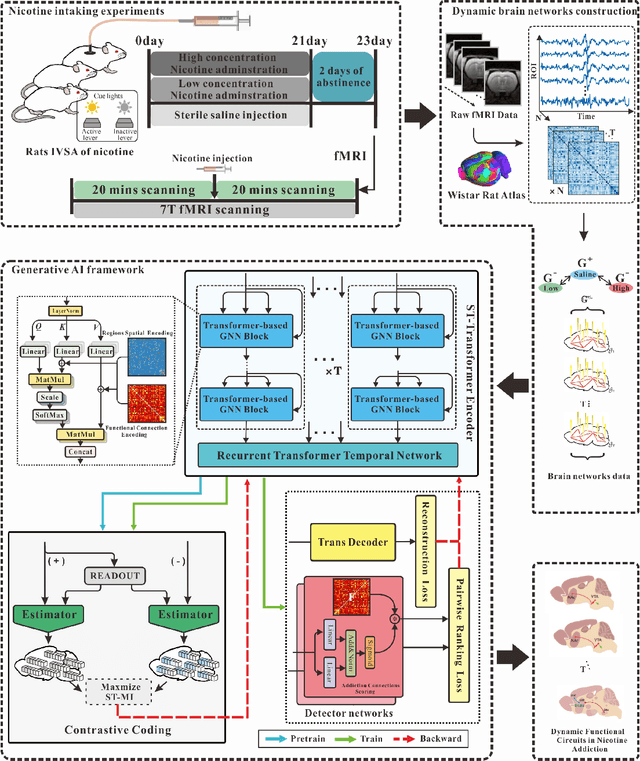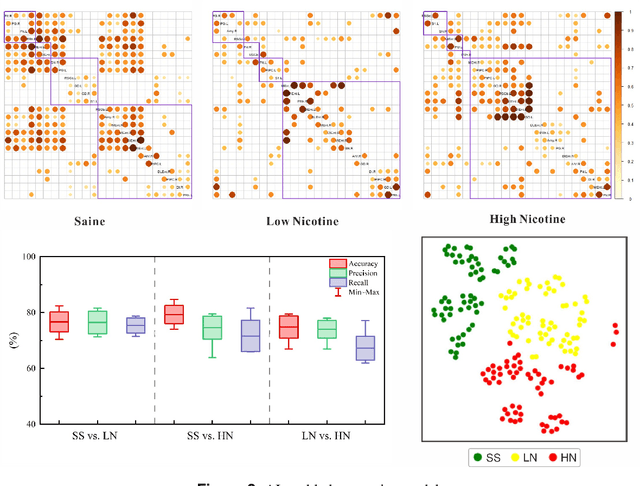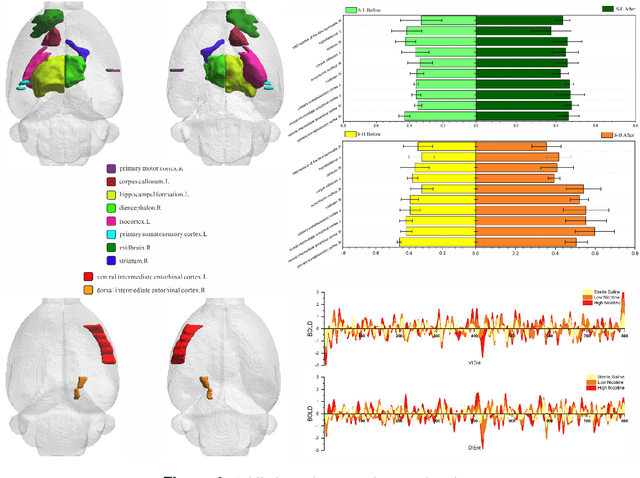Xinan Liu
Generative artificial intelligence-enabled dynamic detection of nicotine-related circuits
Dec 13, 2022



Abstract:The identification of addiction-related circuits is critical for explaining addiction processes and developing addiction treatments. And models of functional addiction circuits developed from functional imaging are an effective tool for discovering and verifying addiction circuits. However, analyzing functional imaging data of addiction and detecting functional addiction circuits still have challenges. We have developed a data-driven and end-to-end generative artificial intelligence(AI) framework to address these difficulties. The framework integrates dynamic brain network modeling and novel network architecture networks architecture, including temporal graph Transformer and contrastive learning modules. A complete workflow is formed by our generative AI framework: the functional imaging data, from neurobiological experiments, and computational modeling, to end-to-end neural networks, is transformed into dynamic nicotine addiction-related circuits. It enables the detection of addiction-related brain circuits with dynamic properties and reveals the underlying mechanisms of addiction.
 Add to Chrome
Add to Chrome Add to Firefox
Add to Firefox Add to Edge
Add to Edge